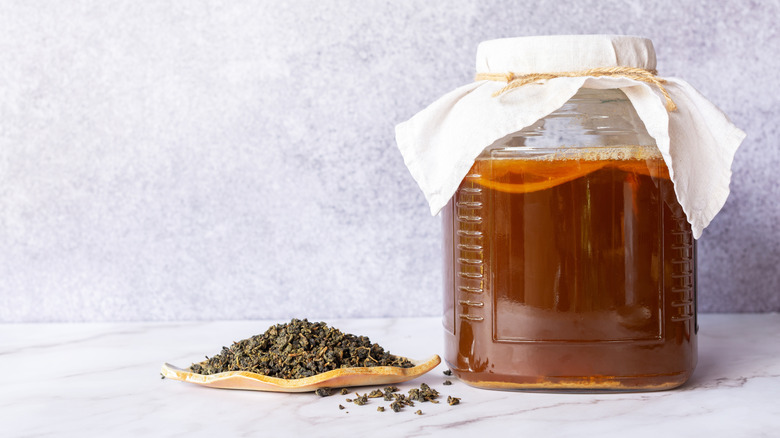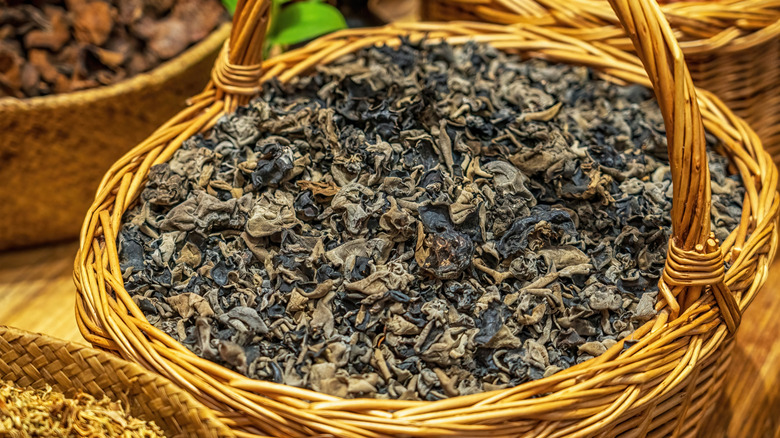The One Rule To Remember When Choosing Tea For Homemade Kombucha
We may receive a commission on purchases made from links.
Kombucha aficionados may know that the drink's name appears to be inaccurately derived from the Japanese words for "seaweed" (kombu) and "tea" (cha). In Japan, if you order kombucha, that's exactly what you'll get, a tea made from seaweed. The drink we're actually referencing was introduced commercially in 1995, and these days, you can find many bottled kombucha brands to try. At $3 to $5 per bottle, however, your tab can add up. So, many people are making kombucha at home. The first step in DIY kombucha is selecting the tea. We consulted with Emma Christensen, Homebrewing Expert and author of the upcoming book "Hard Seltzer, Iced Tea, Kombucha, and Cider" about which option is best. (As you may have guessed, seaweed did not come up.)
"You can use any tea to make kombucha as long as it's caffeinated," Christensen told Tasting Table. "So, black, green, or white, but not herbal or decaf tea, which tend to weaken the SCOBY over time." For the uninitiated, SCOBY is the acronym for "symbiotic culture of bacteria and yeast," the essential ingredient for the fermentation of beneficial bacteria that promote gut health. Kombucha is naturally caffeinated, but as Christensen explained, "If you're sensitive to caffeine, know that the fermentation process breaks down a lot of the caffeine." So, in effect, if you're not getting a buzz from the bottled stuff, you'll be fine with homemade kombucha.
Black and green tea combined make perfect kombucha
Emma Christensen emphasized that using different types of tea will affect the flavor of your kombucha. "Black tea has an earthy, somewhat spicy flavor after fermentation while white tea has the lightest, most neutral flavor," she said. Obviously, there are many possibilities, and we wanted to know which one was her favorite. "Personally speaking, I find a blend of equal parts black and green tea to be the perfect flavor balance for my taste!" Black tea is the most consumed tea in the world. Each variant has its own special qualities, like bergamot oil in Earl Grey or the citrus notes in Ceylon Black, with which you can experiment to suit your own taste. Green teas are also varied and can add floral or smoky notes to your kombucha.
The quality of your homemade kombucha is dependent on the quality of the tea you use, and many fuller loose-leaf varieties will be better than bagged teas. But you also need to find the tea that fits your budget. "If you get into making kombucha, you'll end up going through a lot of tea, so it needs to be affordable." Generally, you'll need six teabags (or 6 teaspoons of whole leaf tea) for a gallon of kombucha. Given the myriad of tea brands, some better than others, it might be hard to choose. Christensen highlighted Whole Foods 365 Organic Tea as her go-to option for making kombucha at home.

